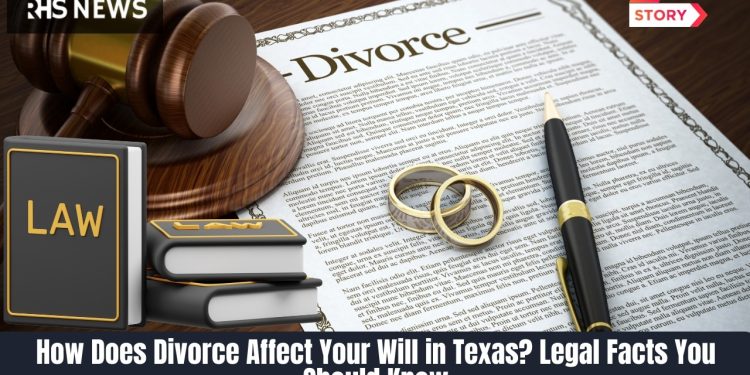Divorce can be a turning point in many aspects of life. While most people focus on property division, child custody, or spousal support during the process, one area that gets overlooked is estate planning. Your will, trust, and beneficiary designations might not align with your new reality after separation.
In Texas, where divorce rates have historically been higher than the national average, it is particularly crucial to understand how dissolving a marriage changes your estate documents. It’s a situation that happens more often than you might expect: A couple divorces, and years later, one of them dies without updating their will. In many cases, the will still names the former spouse as the primary beneficiary. So, what happens next?
In Texas, the law includes a safeguard for this scenario, but there are important details you need to understand. This article explores how divorce affects your will in Texas, why it matters for your financial future, and what steps you can take to secure your legacy after a major life change.
The Law Automatically Removes Your Ex
Texas Estates Code Section 123.001 states that a divorce automatically revokes any provisions in a will favoring the ex-spouse. This includes gifts, as well as appointments as executor, trustee, or guardian—unless the will specifically says otherwise. In short, if you divorce and don’t update your will, the law treats your ex-spouse as though they died before you, effectively removing them from the will.
This rule offers valuable protection since many people forget to update their estate plans during or after a divorce. It serves as a safety net by aligning with what most people would want anyway.
A New Will After Divorce Changes Everything
While the law removes an ex-spouse from your will by default, one exception exists: if you create a new will after the divorce and include your ex-spouse, then they can inherit under that will. This shows a clear intent to provide for them despite the divorce. So, if you remain close or want to support your ex for any reason, you must draft a new will after the divorce that states this explicitly.
Our firm recently handled a case like this. A woman stayed close to her ex-husband, and when he passed away, he had an updated will naming her as the sole beneficiary—signed after their divorce. In that case, she inherited under the will.
Why You Should Still Update Your Estate Plan
Even though Texas law removes ex-spouses from old wills, it doesn’t replace proper estate planning. Divorce changes your finances, family relationships, and priorities. You should also review and update:
- Beneficiary designations on life insurance, retirement accounts, and payable-on-death accounts.
- Powers of attorney and medical directives.
- Guardianship designations if you have minor children.
Texas law doesn’t automatically update these documents, so failing to revise them could lead to results you never intended.
Final Thoughts
Divorce is not only the end of a marriage—it is the beginning of a new chapter. In Texas, where community property laws and automatic revocation rules apply, it is easy to assume your estate is secure after a divorce. However, failing to update your will and related estate documents could put your legacy at risk.
Whether you live in bustling Houston, historic San Antonio, dynamic Austin, or fast-paced Dallas, the lesson remains the same. Taking the time to revise your estate plan after divorce ensures clarity, security, and peace of mind for your loved ones.
Your will is more than a legal document—it reflects your life’s story, values, and legacy. After divorce, make sure that story is told the way you want.
Disclaimer: All information provided on rhsnews.co (“website”) is provided for informational purposes only, and is not intended to be used for legal advice. Users of this website should not take any actions or refrain from taking any actions based upon content or information on this website. Users of this site should contact a licensed Texas attorney for a full and complete review of their legal issues.









